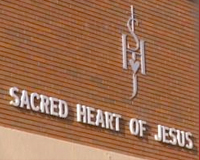COVID-19 won’t stop Pride as LGBTQ plan digital celebrations

Three months into 2020, more than 220 Pride celebrations scheduled worldwide have been forced to cancel or postpone due to the coronavirus pandemic. Now, with rights coming under threat in various places and exacerbated by the virus outbreak, organizers are finding innovative ways of reaching out to their communities to provide alternative spaces online to celebrate.
InterPride and the European Pride Organisers Association announced they’re working with international LGBTQ organizations to present Global Pride 2020, a live-streamed festival scheduled for Saturday, June 27. This means the event will be accessible regardless of disability, location, or socioeconomic status. Anyone with an internet connection will be able to participate. For many Pride events around the world, this level of accessibility will be a first.
“LGBT people around the world are insanely resilient, but they face isolation every day in their life,” says J. Andrew Baker, co-President of Interpride, the international association of Pride organizers. “One of the challenges we find today is that LGBT people are even more isolated.” To overcome that isolation, the world’s biggest international Pride networks, Interpride and the European Pride Organisers Association, are organizing a “Global Pride” to be celebrated online on June 27. Global Pride organizers are planning a 24-hour live streamed event, including remote contributions from international Prides, speeches from human rights activists, workshops with activists and high-profile performers yet to be confirmed.
via Time
For many, Pride is much more than a one-off party or day-long festival. It’s an opportunity for people who may not be “out” publicly to feel comfortable, surrounded by others in their community. The Pride movement emerged after the Stonewall Riots in 1969, and some Prides today have carried on that tradition of protest, using events as an opportunity to connect with other marginalized communities. “It’s become the cornerstone of LGBTQ communities,” says Jed Dowling, the festival director of Dublin LGBTQ Pride. “It’s our Patrick’s Day, it’s our 4th of July, it’s a symbol of everything that was achieved through the year.” This year, activists around the world were planning major celebrations, from Dublin, where same-sex marriage was legalized in 2015, to Zurich, where a recent vote backed proposals to make discrimination on the basis of sexual orientation and gender identity illegal.

